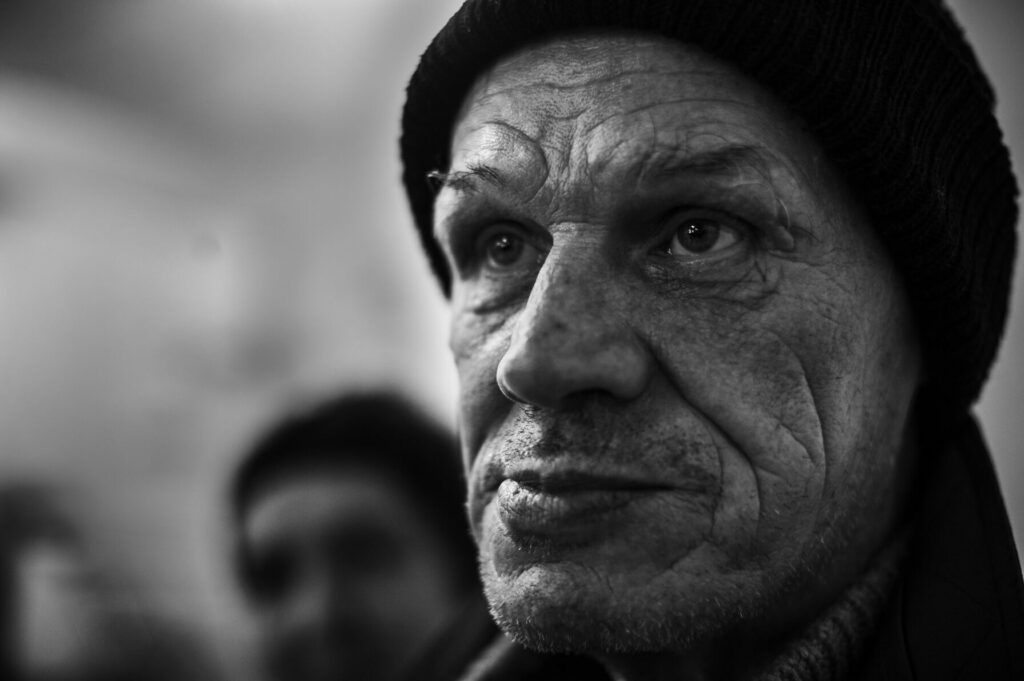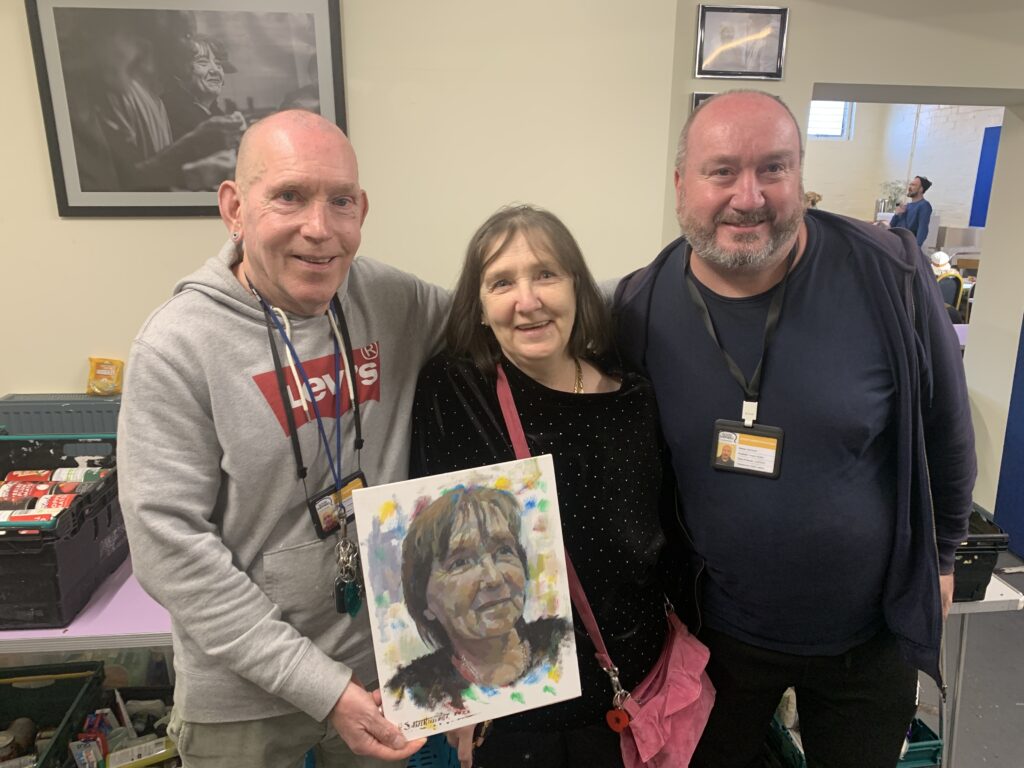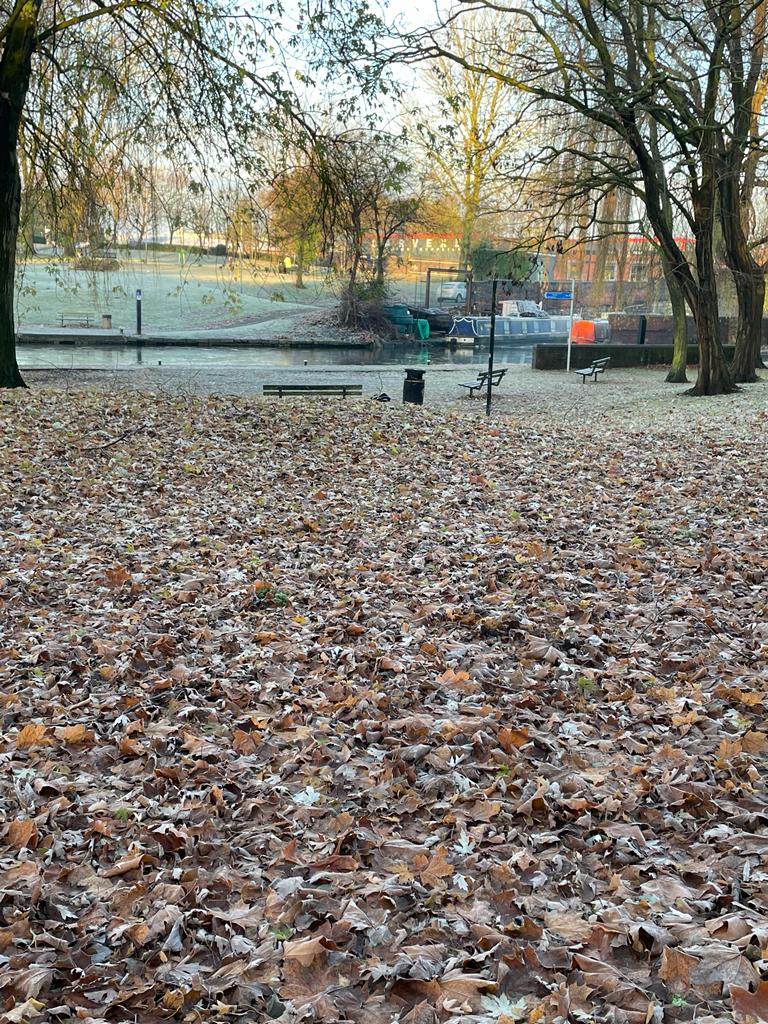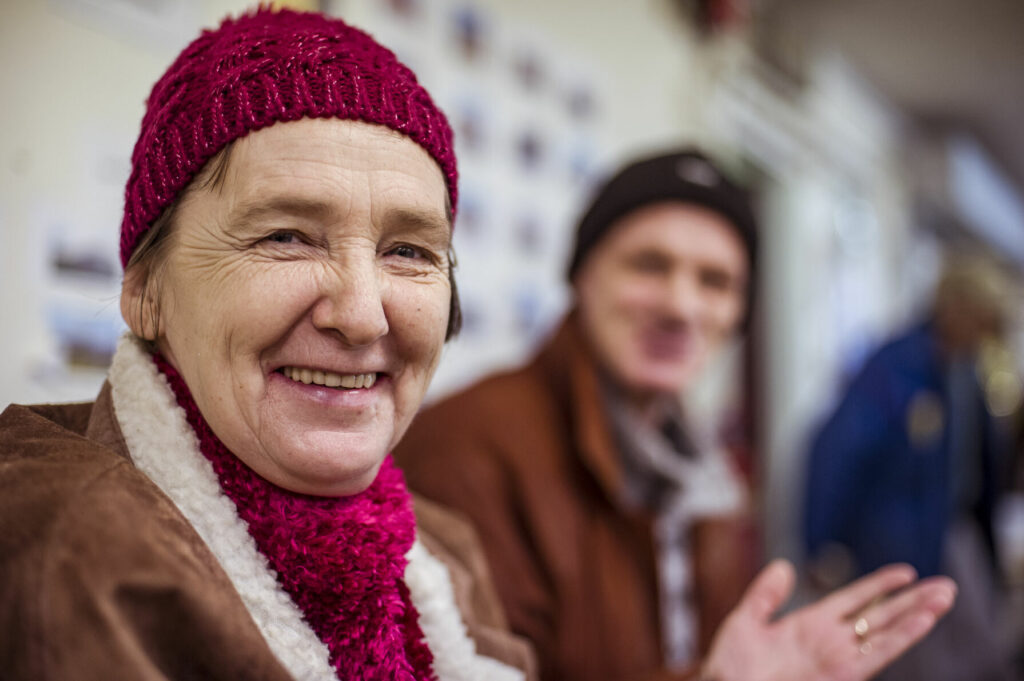For Myra, who turned 60 earlier this year, life in recent times has been something of a challenge.
She speaks several languages, has worked in many different jobs, and, up until just over a decade ago, was happy at home in Latvia with a close family network.
But when, nearly 12 years ago, she found herself unemployed and drifting into poverty, she decided to move to England – with husband Modris – in search of a new life.
Once here she educated herself, adding English to a lengthy list of languages, and they both studied a course in IT and secured settled status to work and make a positive contribution to society.
Then, however, came the challenges.
When work was scarce so was money. Twice, the couple ended up homeless, including once when they were sleeping in a tent by the canal in Wolverhampton.
During that time Myra was diagnosed with cancer and Modris contracted hepatitis C and tuberculosis, from which he was unable to recover, and sadly passed away.

After a lengthy spell of treatment, Myra is now thankfully in remission, and lives alone, in affordable accommodation at a complex run by Midland Heart.
Being homeless, diagnosed with cancer, losing her husband. It has certainly been a difficult few years. But how has Myra coped? How does she deal with it?
“By smiling,” she replies. Her words accompanied by a smile. Of course.
“Smiling helps to live. Don’t cry!”
Her attitude is an inspiration. An infectious inspiration which spills over into all those that she meets.
Including Paul Burns, Housing First Key Worker with the Good Shepherd, who has known Myra for many years.
“Myra has always had this inner happiness – it’s just there as her natural personality, she doesn’t even need to try,” Paul explains.
“Nothing seems to bother her, even though she has experienced some really horrible situations and events.
“She had the strength to come through her cancer diagnosis at the same time as losing Modris, who was such a lovely bloke and so witty.
“Many others wouldn’t have been able to do that, but Myra did, and she has the same smile now as she had all those years ago when I first met her.”
It has certainly been a rough ride for Myra, but one during which the Good Shepherd, and other charities and agencies in the local area, have done their best to try and smooth over.
The self-education that the couple put themselves through to ensure they could adapt to life in England after arriving in Wolverhampton also led to Myra completing a training course to become a Door Supervisor, and she also worked as a cleaner at music festivals.
Back in Latvia, she had followed a number of vocations, including working at a ceramic factory, in agriculture and at a meteorological station.
“It was quite a mix of jobs,” she laughs.
But when agency work dried up, so too did the money, which led to them losing their original accommodation, and seeking help from St George’s Hub – co-incidentally via Neil Booth, who used to work for the charity but is now a Key Worker at the Good Shepherd.

They were also helped by the Refugee & Migrant Centre and P3, eventually finding new accommodation only for the same cycle to return as their job contracts came to an end and they were once again evicted.
Made homeless again, at one point they were sleeping underneath the steps by the old market in the centre of Wolverhampton, leaving them open not just to the elements but also the brainless pranks of mindless revellers.
“Myra and Modris were accessing the Good Shepherd for food while they were on the streets, and I remember getting a call to say some people had weed on them from the top of the steps,” Paul recalls.
“It was people who had come from a pub, they knew exactly what they were doing, and I remember we got some funding to get them cleaned up and to be able to stay in a hotel that night.”

Still though it was a struggle to find anything more permanent, and so the couple were given a tent and pitched up at the canal basin at Broad Street.
Not so much a lifestyle choice as a grim and awful reality.
“Wherever they ended up, they were always so resilient, and when they were down by the canal, there were rats all over the place and getting in their tent, but they just got on with it,” adds Paul.
“Unfortunately, once they went there a few other tents arrived as well, including people using drugs such as mamba, which was completely alien to how they wanted to live.
“They had a little cooker and would have tins from the Good Shepherd which Myra would cook outside the tent.
“We also tried to help with other things like coats and other clothing, whatever we could supply them to help.
“It was from there that Modris took ill and eventually passed, and to see someone like Myra have to go through all this trauma was very difficult.
“When they were both in the tent, only one of them could ever come to the Good Shepherd at a time, because it was dangerous to leave their tent unguarded.”
“If we ever both left the tent at the same time then we would lose all our possessions or it would be set on fire,” Myra confirms.
“So, we always had to make sure one of us stayed behind.
“I didn’t mind the rats so much – when they came in, I would tell them to ‘get out’, and they listened!
“We just had to get on with it, and I never wanted to stop learning – I remember finishing one computer course and passing the exam and getting a certificate while I was homeless.
“When I lost Modris, I just had to carry on as well and get through the cancer where I was treated very well at New Cross Hospital.
“I just needed to be strong. What other choice did I have?”

Throughout the process the Good Shepherd and the other charities involved tried to support Myra as much as possible and working relationships were formed which have stood the test of time.
“So many people who end up homeless are in a Lost World, and, when they go through all that trauma, they end up damaged,” adds Paul.
“With Myra there is just no bitterness or nastiness, she just gets on with life, and it’s lovely to see her now in such a good place and with some happiness, even though she still misses Modris.”
With the help of the City of Wolverhampton Council and Wolverhampton Homes, Myra is in her own sheltered accommodation not too far out of the city, in a community where she is safe and comfortable whilst also being able to join neighbours for trips and excursions.
She has maintained her links with the Good Shepherd, including taking part in a workshop during last year’s British Art Show which sees a drawing of her among those on display in the dining room.
Her 94-year-old mother is still alive in Latvia, and she has a brother and son also in the country as well as a daughter in the Netherlands. Regular Skype calls and the exchange of photographs keep the family together and in touch.
“Myra is also giving back, and touching other people with her kindness,” adds Paul.
That’s because in her spare time she is a keen knitter, and the hats, gloves and scarves which are the fruits of her labour are generously given to people as presents, as well as being passed on to service users attending the Good Shepherd to help cope with the winter cold.
For Myra, it is very much of labour of love, and just another part of her multi-faceted personality and kind and selfless nature.
“This is now my medicine,” she says. With another smile.
“Because when I am knitting, I feel good, and I feel healthy.”